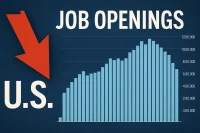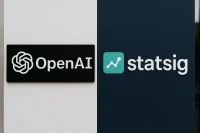The largest union at Boeing rejected a new labor contract on Wednesday, extending a six-week strike that has intensified the jet maker’s financial strain.
Union leaders from the International Association of Machinists and Aerospace Workers (IAM) reported 64 percent of members voted against a proposal that would have provided a 35 percent wage increase over four years.
Factories Remain Idled Amid Financial Uncertainty
The ongoing strike has halted production at key Boeing facilities responsible for building the 737, 767, and 777 jet models. This disruption further risks Boeing’s revenue streams and the stability of its supply chain.
The extended stoppage coincided with Boeing’s announcement to investors that it expects to continue burning cash through 2025. Boeing has already lost over $10 billion in the first nine months of 2024. Analysts estimate the strike costs Boeing around $1 billion per month.
The strike’s impact has rippled beyond Boeing, affecting suppliers that have resorted to layoffs and furloughs due to the halted production. Credit-rating agencies have also signaled Boeing may face downgrades into junk status if the cash flow situation worsens.
Key Demands and Discontent Over Contract Offer
Despite the proposed 35 percent wage hike—an increase from an initial 25 percent—union members in the Pacific Northwest voted against the revised deal.
Jon Holden, president of the local IAM chapter, said machinists were dissatisfied with years of concessions and wanted better retirement options.
He saidd:
“They haven’t gone far enough in other ways to replace it.”
Specifically, members are pushing for the restoration of pension benefits or a more substantial alternative than the increased 401(k) contributions proposed by Boeing.
Employee Vaughn Johnson voted against the deal.
He said:
“It sounds good but if you factor in buying power, it still seems like we haven’t gotten a real raise.”
Johnson acknowledged that the offer was an improvement but still fell short of meeting workers’ expectations for meaningful gains, especially given the rising cost of living.
Need Career Advice? Get employment skills advice at all levels of your career
Boeing’s Financial Plans and CEO’s Efforts to Resolve the Dispute
Boeing CEO Kelly Ortberg has made ending the strike a top priority, and the company has been actively negotiating with the union to reach a compromise.
However, Ortberg has also outlined plans to cut 17,000 jobs and raise at least $10 billion through stock sales to offset the company’s cash drain.
Before the vote, Ortberg emphasized that Boeing was “feverishly working to find a solution that works for the company and meets our employees’ needs.”
The company’s revised offer included a $7,000 ratification bonus and a one-time $5,000 payment to employee retirement accounts but stopped short of fully restoring pension benefits—a key demand for many workers.
Growing Uncertainty for Boeing and Its Workforce
As the strike extends beyond six weeks, both Boeing and its workers face increased uncertainty.
The standoff highlights the persistent discontent over pay, benefits, and job security in an industry still recovering from supply chain disruptions and market challenges.
With union members continuing to push for better terms, Boeing must navigate a delicate balancing act between maintaining its workforce and securing its financial stability.




